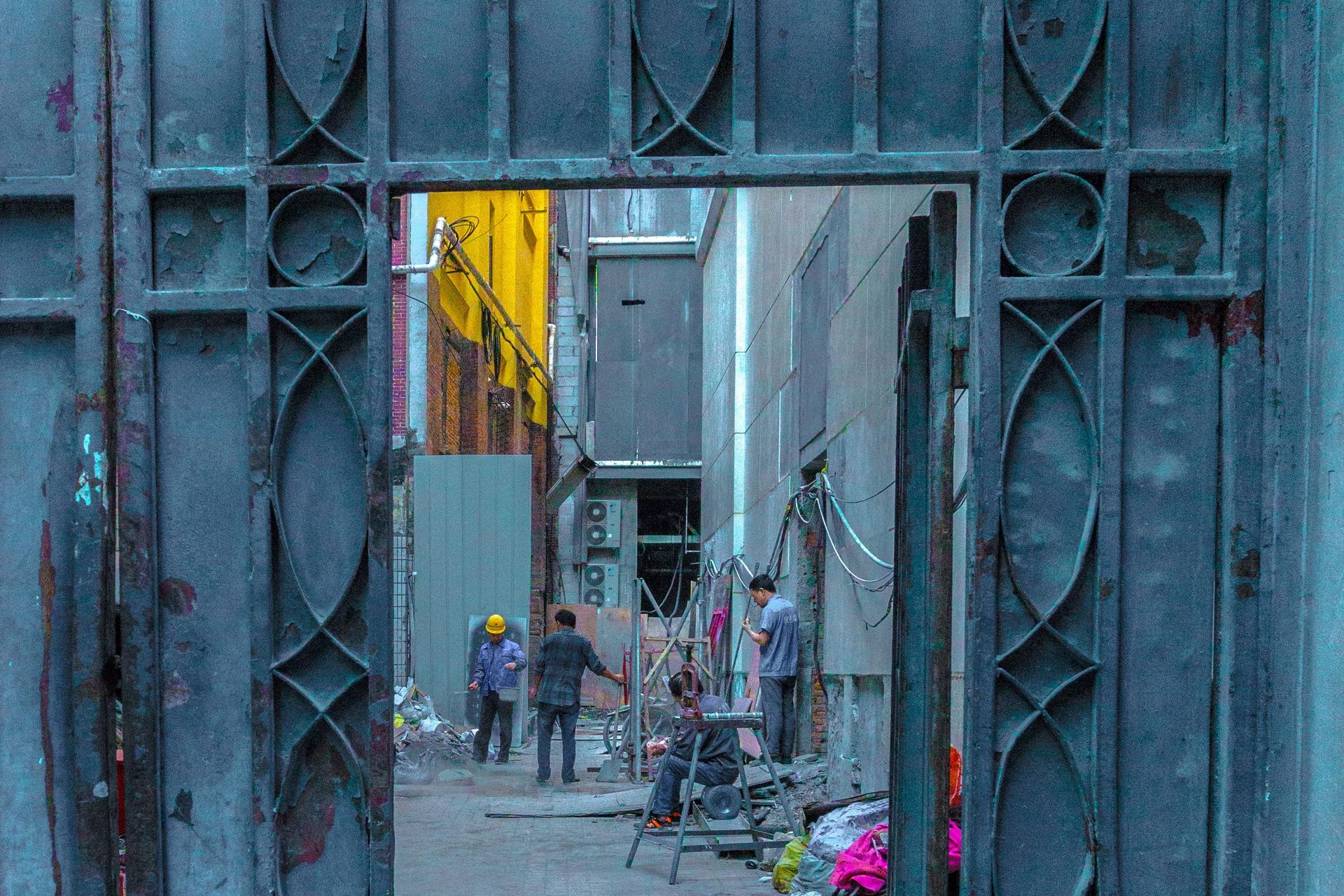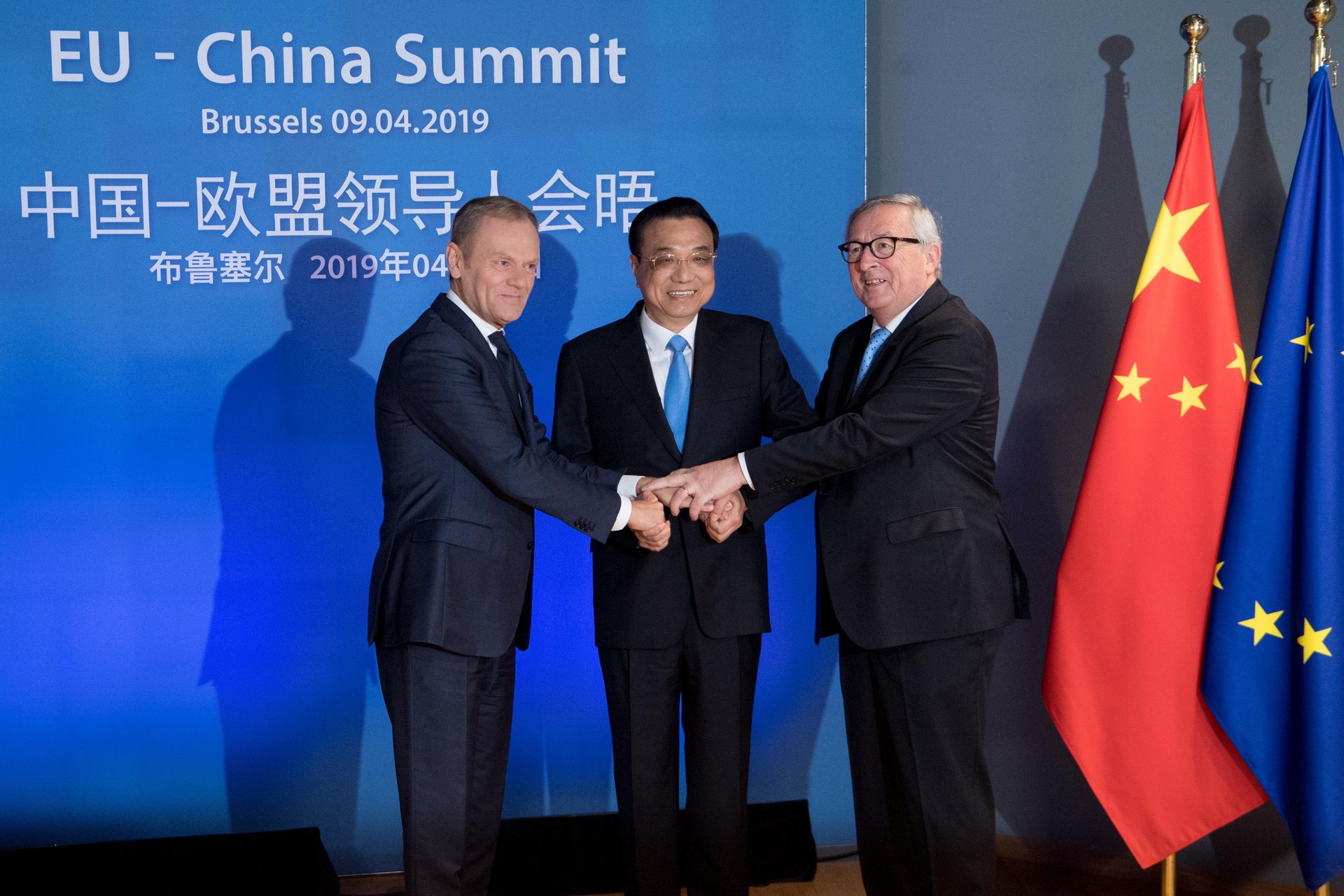Italy, especially under the co-government of the Five-Stars movement led by Vice-president Luigi Di Maio, is now taking an approach that’s different from other large EU partners: In late March, the Italians signed 29 documents that established their participation in projects led by China’s flagship project, the “New Silk Road.” The agreements will encompass areas of telecommunication as well as the expansion of the ports in Genoa and Trieste, and will include a financing regulation. The German Foreign Minister Heiko Maas heavily criticised this participation and called upon a unified EU procedure: “We can only exist if the EU remains unified.”

The European Union is China’s biggest trade partner, and for the EU, China is second after the United States. Every day, both economies trade goods valued at over a billion Euro. In 2017, the EU exported products worth 198 billion Euro to China, and imported 375 billion, so almost double as much. China’s economic power is also based on its exporting strength. But just like Germany, this also makes it vulnerable: A stronger decline in exports could threaten jobs. The EU-Commission therefore has enough leverage to negotiate with China over contentious topics.
Germany in particular has a special relationship to China. This past year, we’ve exported goods worth 93 billion Euro to China, while we imported goods worth 106 billion Euro; the relationship is therefore pretty even. France exported only 21 billion Euro, reaching less than a quarter of Germany’s contributions. This means that Germany has cut off a big piece of the cake for itself. Is it therefore not understandable that other EU countries want their piece?

The Harmony is Being Challenged
At the 20th EU-China Summit Meeting, the final statement on 16 July 2018 emphasised the need for expanding the strategic partnership and maintaining the support for a rule-based trade (a “comprehensive strategic partnership”). The leaders of both countries agreed on topics such as supporting the search for a peaceful and diplomatic solution for the North Korean nuclear issue, and on maintaining the nuclear agreement with Iran.
But critical voices are starting to challenge this harmony. In a paper from January 2019, the German industry demanded a tougher approach to China. It set up 54 demands that are meant to make Germany and Europe more competitive in the face of China’s state capitalism. “The systematic competition with China forces us to think strategically and more long-term,” Dieter Kempf, the president of the Federal Union of German Industries (BDI) said. The German Economics Minister Peter Altmaier thinks similarly. In his “National Industry Strategy 2030,” he described an “activated, promoted, and protective industry policy” which would shape a viable market economy that’s independent of relations to China, but would also look towards expansion. The Chinese high-tech program “Made in China 2025” may have been an incentive for this train of thought. On the other hand, the US administration is trying to cut China off from modern technologies and isolate it under the motto “decoupling.”

Partner, Competitor, or Rival?
On 12 March 2019, the EU-Commission presented another critical assessment with the “EU-China - a strategic partnership” presentation. It’s a review that’s also directed at the EU Parliament and at the European Council. According to the presentation, four political forms are currently defining our relationship to China. The country is:
- A cooperations partner with similar goals
- A negotiations partner with which similar interests can be found
- An economic rival on the way to technological dominance
- And a rival that promotes alternative government systems
This paper, with its rather unexpected listing of our positions, also served as preparation for the 21st EU-China Summit on 9 April 2019 in Brussels. The goal is a realistic relationship with China’s leadership. Unfortunately, the constant discussion regarding Brexit in March left this important topic on the back burner. Only one of the EU’s ten demands were presented: “In order to protect against potentially grave consequences to the security of critical digital infrastructures, a mutual EU approach regarding the security of 5G networks is necessary.”
The French president Emmanuel Macron asked the Chinese president Xi Jinping in anticipation of his state visit to Paris to “respect Europe’s unity.” He was referring to the signed contracts with Italy. Sometimes it’s helpful to set up boundaries, even for good partners. Would it have been helpful to seek public contact with the Dalai Lama, Taiwan, or with groups of Uighurs before the EU-China Summit on 9 April in order to show China that it’s not as untouchable as it seems? Whoever provokes before an important conference (as was the case with the China-Italy agreements) must expect to be provoked in return.
Focusing on Cooperating with Central Asian States
From a European perspective it would be sensible to become more involved with Central Asian states that sit along the Chinese “Belt and Road Initiative” (the new Silk Road). Even 30 years after the fall of the Soviet Union, I am not certain whether we Europeans understand which country has more citizens: Huge Kazakhstan or the comparatively smaller Uzbekistan? After all, this mega-project also offers some economic benefits for Europe. However, our European model of a democratic constitutional state will not expand on its own. China’s promises of wealth, security, and order are, within a global context, an attractive counterpart to state leaderships. Autocratic governments won’t be inclined to doubting their methods after watching the almost incomprehensible parliamentary procedures happening through Brexit, after all.
Perhaps we are currently in a phase in which globalisation doesn’t just refer to the best distribution of goods, services, and capital across world markets, but also begs a different question: What values and what political directions will the future determine? The American ones? The Chinese ones? Or our European values?
About the Author:
Ferry Wittchen is a lawyer and accountant in the Stuttgart region, and advises especially mediumsized enterprises within the context of internationalisation.

